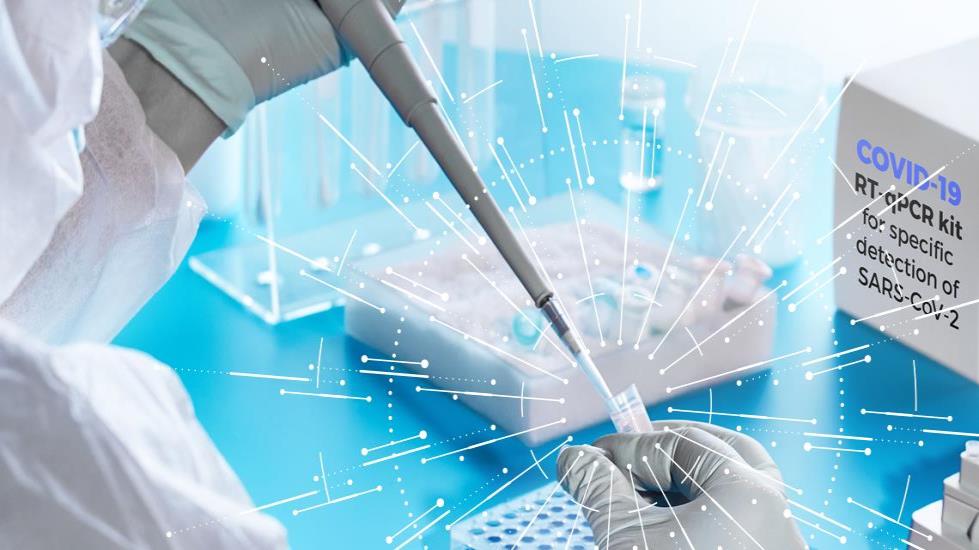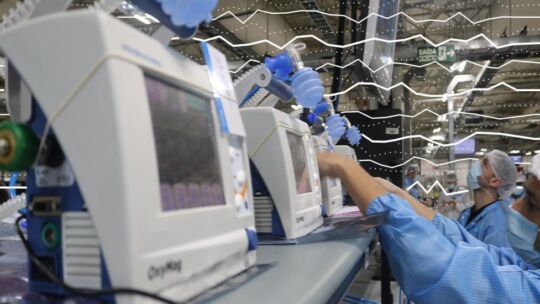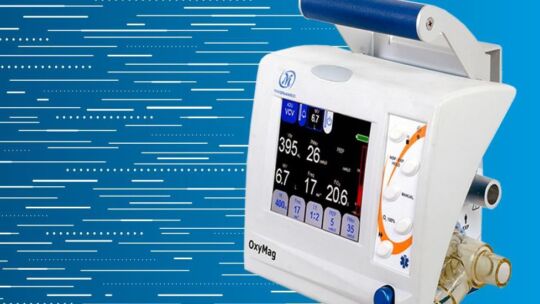
The challenge
A leading medical equipment company produces fully automated diagnostic machines that test for COVID-19. They also produce test kits for collecting samples. One is a real-time reverse transcribed polymerase chain reaction (RT-PCR) test, which detects the virus in swab samples taken from patients. These samples are then run through the company’s machines, producing results in under four hours. Real-time RT-PCR testing continues to be the most accurate method available for the detection of COVID-19. It is also the most widely used test methodology for the COVID-19 virus.

Within these large and sophisticated systems sit several high-performance molded plastic parts, including an AD plate, cassette, and frame. We have been producing these precision plastics at our facility in Hägglingen, Switzerland for many years. With demand surging for COVID-19 tests, our customer needed to increase production of its machine (including the plastic parts), to double or even triple the number of available in-field test kits worldwide.
The solution
Our Hägglingen site was able to immediately increase production of these plastic components, called boxes, but our team also needed to quickly add production lines in our other sites to meet the urgent demand.
Each incremental box equated to hundreds of tests for patients who were desperately in need of results. We began to produce 1,000 boxes per week — adding more than three million tests per week. And that number keeps growing as we continue to revise tooling and molding operations at our sites worldwide, including our U.S. facility in Manchester, Connecticut, supported by our Buffalo Grove, Illinois and Tempe, Arizona sites.
At our Manchester site, which produces molds for surgical instruments, infusion pumps, and many other medical devices, we had ISO 8 cleanroom space ready to deploy against the pandemic.
The first step was to have our Manchester facility audited by the customer, as this was our first U.S. site to manufacture items for them. With a successful outcome and production lines built, Manchester is now expected to produce 50,000 boxes annually.
Seeing the potential to save lives
In a very short time, we created an aggressive plan to build tools (molds) in our vertically integrated precision plastics facilities. Tools that would normally take more than 20 weeks to build were created in just seven. Other tools were built in ten weeks that normally required 40 weeks.
The normal lead time to manufacture the Processing Plate tooling, for example, is 40 weeks, but our team was able to complete the job in a quarter of the time, knowing that shortening the time meant saving lives. Our customer helped us secure the key ingredient to reduce the timeframe of the mold design. Then, an energized task force worked nights and weekends to develop and submit the plan, build strong tooling capabilities, and execute across our landscape.
We also calculated that by producing the inserts non-stop, 24/7, with nothing waiting in a queue, we could improve the timing even more. This enhanced lead time on mold building by leveraging our expertise in tooling capabilities across our precision plastics group.
Decreasing lead time through vertical integration
Our precision plastics group at Flex is the largest medical mold builder in the world. Using the very latest specialist technology and a sophisticated network of production capability within the company, we can split workloads across different sites and create a vertically integrated workflow to optimize efficiency.
In this project, for example, we used several injection molding machines at Manchester, Connecticut; Buffalo Grove, Illinois; and Tempe, Arizona. Our U.S. sites were supported by our team in Hägglingen, Switzerland with the AD Plate, and teams in Pamplona, Spain and Sonderborg, Denmark supported tooling with standard components, steel procurement and support, and technical expertise.
Pipettes production for antibody testing
Our customer produces an antibody test kit and diagnostic system that detects a patient’s immune response to SARS-CoV-2. In June 2020, the FDA provided emergency use clearance for the blood test, which can, within 18 minutes, identify patients who may have had asymptomatic infection, or are post infection and carry antibodies to the virus.
We already produce billions of pipette tips each year to exacting specifications for other types of tests, and we are now in the process of increasing output at our Hägglingen facility to support antibody test kits and diagnostics.
Working as a single team
Our engineers and operations team saw this as an important opportunity to collaborate with our customer. We worked together seamlessly, with the customer following our progress and pushing their suppliers in the supply chain when necessary to meet delivery times. Obstacles or decisions on technical solutions were quickly resolved as the perspectives and experience of both teams overcame every issue.


